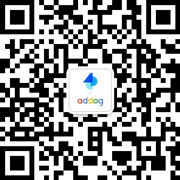本案例默认翻译为中文,点击可切换回原语言
已切换成原语言,点击可翻译成中文
DO Black-碳限制信用卡
案例简介:背景 2018,Doconomy推出了一种名为DO的服务,这是一种与支付卡相关联的移动银行服务,创建了一个与所有商业相关的用户基于消费的气候影响的概况。此配置文件是通过将影响值应用于分类的产品和服务 (使用 å land索引) 而创建的。该平台允许用户通过一些联合国认证的绿色项目跟踪、测量和抵消其影响,同时提供数据驱动的见解,以支持行为变化,并通过有意识的消费采取气候行动。 简报是将有限资源的Doconomy定位在拥挤的金融技术环境中,作为一个可信和独特的变革推动者。 目标是让Doconomy被认为是一个有用的解决方案,从而提高意识、用户采用和富有成效的伙伴关系。 描述创意 (30% 的选票) “做黑-碳排放限制信用卡” 是一个激进的新工具和创新的解决方案,应对气候危机。这是第一张有CO2-emission限制的卡,阻止你超支,不是基于可用资金,而是基于你的消费造成的影响。 该创新结合了三个功能。衡量每笔交易影响的能力 (奥兰指数) 、按国家/人均计算CO2-emission设定限额,以及覆盖账户金融信用水平CO2-emission支付系统整合限额。 该技术阻止超过二氧化碳限额的交易,禁用信用卡并通知持卡人。 描述策略 (20% 的选票) 来自我们试点市场的数据确定了几个机会。98% 的瑞典人认为受到气候变化的影响,78% 的人希望在个人层面上缓解这种影响。70% 的人说习惯是一个障碍。65% 将转向气候智能银行。 为了相关性,我们在与世界自然基金会、H & M、奥兰斯班肯和斯德哥尔摩经济学院的研讨会上验证了数据驱动的见解,以确定挑战、文化框架和受众 (20-35岁的年轻女性) 机会。与气候变化相关的消费有一个明确的情感驱动力,但缺乏具体的解决方案和有形的数据驱动工具来吸引和激活消费者。 接触目标受众的战略是开发一种工具,使他们能够推动变革并支持《巴黎协定》中的目标。通过合作的方式,我们让联合国和万事达卡的两端都参与开发DO Black。 描述执行情况 (20% 的选票) 根据时间表,在瑞典试点市场实施。 2018,March,tech pre-study with å landsbanken 2018,June,first platform的Tech dev 2018,9月,与联合国的谈判 2018 10月Doconomy平台上线 2019,2月,来自联合国的谅解备忘录 2019,3月,从万事达卡批准 2019,March,Tech dev IRL CO2限值 2019,四月,生产从金雅拓开始 2019,4月,DO Black的推出 2019,10月,市场信用卡 所有沟通的位置都是我们自己的渠道或赢得的媒体覆盖面。 CO2-limit创新是可扩展的,适用于不同的市场,相关的所有信用卡和支付解决方案。CO2-limit,虽然在DO Black上是强制性的,但可以作为现有账户的可选功能提供。全球40多家银行和信用卡公司已经联系讨论合作事宜 列出结果 (30% 的选票) 意图使Doconomy被视为 (1) 有用的解决方案,(2) 导致意识,(3) 用户采用和 (4) 富有成效的伙伴关系。 1. “DO Black” 正在生产中,计算每个国家/人均CO2-limit。 2.在全球可持续发展/金融技术峰会上,通过 + 20.000.000的媒体影响力和主题演讲建立意识。 3.已超过所有初步目标,仅在瑞典就有4 000个用户注册。 4。+ 40家全球银行和信用卡公司已经联系讨论合作。埃斯皮诺萨女士,《气候公约》有一个公开认可的Doconomy,万事达卡将Doconomy定义为 “可持续支付的未来”。
DO Black-碳限制信用卡
案例简介:Background In 2018 Doconomy launched a service called DO, a mobile banking service linked to a payment card, creating a profile of a user’s consumption-based climate impact relevant all commerce. This profile is created by applying an impact value to categorized products and services (using Åland Index). The platform allows the user to track, measure and offset their impact through a number of United Nations Certified Green Projects, while providing data driven insights to support behavior changes and take climate action through conscious consumption. The brief was to position Doconomy with limited resources in a crowded fintech environment, as a credible and unique agent for change. The objectives was to make Doconomy perceived as a helpful solution, resulting in awareness, user adoption and productive partnerships. Describe the creative idea (30% of vote) “DO Black – the carbon emission limit credit card” is a radical new tool and innovative solution addressing the climate crisis. It’s the first card with a CO2-emission limit, stopping you from overspending, not based on available funds but on the impact caused by your consumption. The innovation combines three functions. The ability to measure the impact of every transaction (Åland Index), the set CO2-emission limit calculated per country/capita, and the payment system integration of CO2-emission limit overriding the accounts financial credit level. The technology blocks transactions exceeding the CO2 limit, disables the credit card and notifies the cardholder. Describe the strategy (20% of vote) Data from our pilot market identified several opportunities. 98% of Swedes believe to be impacted by climate change, and 78% want to mitigate this on personal level. 70% say habits are an obstacle. 65% would switch to a climate smart bank. For relevance we verified data driven insights in workshops with WWF, H&M, Ålandsbanken and Stockholm School of Economics to identify challenges, cultural frame and audience (young women 20-35) opportunities. There’s a definite emotional driver in consumption connected to climate change, but there’s a lack of concrete solutions and tangible data driven tools that engage and activate consumers daily. The strategy to reach the target audience was to develop a tool that enabled them to drive change and support the targets in the Paris Agreement. With a collaborative approach we engaged both ends of the scale, United Nations as well as Mastercard in developing DO Black. Describe the execution (20% of vote) Implementation in Sweden, pilot market, according to timeline. 2018, March, tech pre-study with Ålandsbanken 2018, June, Tech dev of first platform 2018, September, negotiations with UN 2018, October, launch of Doconomy platform 2019, February, MOU from UN 2019, March, Approval from Mastercard 2019, March, Tech dev IRL CO2 limit 2019, April, Production start with Gemalto 2019, April, Launch of DO Black 2019, October, credit cards in the market Placement for all communication has been our own channels or earned media reach. The CO2-limit innovation is scalable and adaptable to different markets, relevant all credit card and payment solutions. The CO2-limit, although mandatory on DO Black, can be offered as an optional function on existing accounts. Over 40 banks worldwide and credit card companies have reached out to discuss collaboration List the results (30% of vote) Intention to make Doconomy perceived as a (1) helpful solution, (2) resulting in awareness, (3) user adoption and (4) productive partnerships. 1. “DO Black” is in production with CO2-limit per country/capita calculated. 2. Awareness built with earned media reach of +20.000.000 and keynotes at sustainability/fintech summits worldwide. 3. All initial targets have been exceeded, with 4 000 user registrations in Sweden alone. 4. +40 banks worldwide and credit card companies have reached out to discuss collaboration. Ms. Espinosa, UNFCCC has a publicly endorsed Doconomy and Mastercard has defined Doconomy as “the future of sustainable payments”.
DO Black - The carbon limit credit card
案例简介:背景 2018,Doconomy推出了一种名为DO的服务,这是一种与支付卡相关联的移动银行服务,创建了一个与所有商业相关的用户基于消费的气候影响的概况。此配置文件是通过将影响值应用于分类的产品和服务 (使用 å land索引) 而创建的。该平台允许用户通过一些联合国认证的绿色项目跟踪、测量和抵消其影响,同时提供数据驱动的见解,以支持行为变化,并通过有意识的消费采取气候行动。 简报是将有限资源的Doconomy定位在拥挤的金融技术环境中,作为一个可信和独特的变革推动者。 目标是让Doconomy被认为是一个有用的解决方案,从而提高意识、用户采用和富有成效的伙伴关系。 描述创意 (30% 的选票) “做黑-碳排放限制信用卡” 是一个激进的新工具和创新的解决方案,应对气候危机。这是第一张有CO2-emission限制的卡,阻止你超支,不是基于可用资金,而是基于你的消费造成的影响。 该创新结合了三个功能。衡量每笔交易影响的能力 (奥兰指数) 、按国家/人均计算CO2-emission设定限额,以及覆盖账户金融信用水平CO2-emission支付系统整合限额。 该技术阻止超过二氧化碳限额的交易,禁用信用卡并通知持卡人。 描述策略 (20% 的选票) 来自我们试点市场的数据确定了几个机会。98% 的瑞典人认为受到气候变化的影响,78% 的人希望在个人层面上缓解这种影响。70% 的人说习惯是一个障碍。65% 将转向气候智能银行。 为了相关性,我们在与世界自然基金会、H & M、奥兰斯班肯和斯德哥尔摩经济学院的研讨会上验证了数据驱动的见解,以确定挑战、文化框架和受众 (20-35岁的年轻女性) 机会。与气候变化相关的消费有一个明确的情感驱动力,但缺乏具体的解决方案和有形的数据驱动工具来吸引和激活消费者。 接触目标受众的战略是开发一种工具,使他们能够推动变革并支持《巴黎协定》中的目标。通过合作的方式,我们让联合国和万事达卡的两端都参与开发DO Black。 描述执行情况 (20% 的选票) 根据时间表,在瑞典试点市场实施。 2018,March,tech pre-study with å landsbanken 2018,June,first platform的Tech dev 2018,9月,与联合国的谈判 2018 10月Doconomy平台上线 2019,2月,来自联合国的谅解备忘录 2019,3月,从万事达卡批准 2019,March,Tech dev IRL CO2限值 2019,四月,生产从金雅拓开始 2019,4月,DO Black的推出 2019,10月,市场信用卡 所有沟通的位置都是我们自己的渠道或赢得的媒体覆盖面。 CO2-limit创新是可扩展的,适用于不同的市场,相关的所有信用卡和支付解决方案。CO2-limit,虽然在DO Black上是强制性的,但可以作为现有账户的可选功能提供。全球40多家银行和信用卡公司已经联系讨论合作事宜 列出结果 (30% 的选票) 意图使Doconomy被视为 (1) 有用的解决方案,(2) 导致意识,(3) 用户采用和 (4) 富有成效的伙伴关系。 1. “DO Black” 正在生产中,计算每个国家/人均CO2-limit。 2.在全球可持续发展/金融技术峰会上,通过 + 20.000.000的媒体影响力和主题演讲建立意识。 3.已超过所有初步目标,仅在瑞典就有4 000个用户注册。 4。+ 40家全球银行和信用卡公司已经联系讨论合作。埃斯皮诺萨女士,《气候公约》有一个公开认可的Doconomy,万事达卡将Doconomy定义为 “可持续支付的未来”。
DO Black - The carbon limit credit card
案例简介:Background In 2018 Doconomy launched a service called DO, a mobile banking service linked to a payment card, creating a profile of a user’s consumption-based climate impact relevant all commerce. This profile is created by applying an impact value to categorized products and services (using Åland Index). The platform allows the user to track, measure and offset their impact through a number of United Nations Certified Green Projects, while providing data driven insights to support behavior changes and take climate action through conscious consumption. The brief was to position Doconomy with limited resources in a crowded fintech environment, as a credible and unique agent for change. The objectives was to make Doconomy perceived as a helpful solution, resulting in awareness, user adoption and productive partnerships. Describe the creative idea (30% of vote) “DO Black – the carbon emission limit credit card” is a radical new tool and innovative solution addressing the climate crisis. It’s the first card with a CO2-emission limit, stopping you from overspending, not based on available funds but on the impact caused by your consumption. The innovation combines three functions. The ability to measure the impact of every transaction (Åland Index), the set CO2-emission limit calculated per country/capita, and the payment system integration of CO2-emission limit overriding the accounts financial credit level. The technology blocks transactions exceeding the CO2 limit, disables the credit card and notifies the cardholder. Describe the strategy (20% of vote) Data from our pilot market identified several opportunities. 98% of Swedes believe to be impacted by climate change, and 78% want to mitigate this on personal level. 70% say habits are an obstacle. 65% would switch to a climate smart bank. For relevance we verified data driven insights in workshops with WWF, H&M, Ålandsbanken and Stockholm School of Economics to identify challenges, cultural frame and audience (young women 20-35) opportunities. There’s a definite emotional driver in consumption connected to climate change, but there’s a lack of concrete solutions and tangible data driven tools that engage and activate consumers daily. The strategy to reach the target audience was to develop a tool that enabled them to drive change and support the targets in the Paris Agreement. With a collaborative approach we engaged both ends of the scale, United Nations as well as Mastercard in developing DO Black. Describe the execution (20% of vote) Implementation in Sweden, pilot market, according to timeline. 2018, March, tech pre-study with Ålandsbanken 2018, June, Tech dev of first platform 2018, September, negotiations with UN 2018, October, launch of Doconomy platform 2019, February, MOU from UN 2019, March, Approval from Mastercard 2019, March, Tech dev IRL CO2 limit 2019, April, Production start with Gemalto 2019, April, Launch of DO Black 2019, October, credit cards in the market Placement for all communication has been our own channels or earned media reach. The CO2-limit innovation is scalable and adaptable to different markets, relevant all credit card and payment solutions. The CO2-limit, although mandatory on DO Black, can be offered as an optional function on existing accounts. Over 40 banks worldwide and credit card companies have reached out to discuss collaboration List the results (30% of vote) Intention to make Doconomy perceived as a (1) helpful solution, (2) resulting in awareness, (3) user adoption and (4) productive partnerships. 1. “DO Black” is in production with CO2-limit per country/capita calculated. 2. Awareness built with earned media reach of +20.000.000 and keynotes at sustainability/fintech summits worldwide. 3. All initial targets have been exceeded, with 4 000 user registrations in Sweden alone. 4. +40 banks worldwide and credit card companies have reached out to discuss collaboration. Ms. Espinosa, UNFCCC has a publicly endorsed Doconomy and Mastercard has defined Doconomy as “the future of sustainable payments”.
DO Black-碳限制信用卡
暂无简介
DO Black - The carbon limit credit card
暂无简介
基本信息
- 广告战役: #Doconomy-网络-a5a8#
- 广告品牌: Doconomy
- 发布日期: 2000
- 行业领域: 商务服务
- 媒体类别: 海报/平面
- 广告语言: 英语
- 媒介平台: 网络
-
获得奖项:
- Cannes Lions 2019 大奖 创意电商(Payment)
- Cannes Lions 2019 银奖 创意电商(Challenger Brand)
- Cannes Lions 2019 铜奖 创新(Product Innovation)
- Cannes Lions 2019 铜奖 可持续发展目标(Responsible Consumption and Production)
- Cannes Lions 2019 铜奖 可持续发展目标(Climate Action)
- Cannes Lions 2019 铜奖 可持续发展目标(Partnerships for the Goals)
- Cannes Lions 2019 入围 创意数据(Data-driven Consumer Product)
- Cannes Lions 2019 入围 创意电商(Corporate Social)
暂无评分
已有{{caseInfo.tatolPeople}}人评分
创作者
案例详情
涵盖全球100万精选案例,涉及2800个行业,包含63000个品牌
热门节日97个,23个维度智能搜索
-

项目比稿
品类案例按时间展现,借鉴同品牌策略,比稿提案轻松中标
-

创意策划
任意搜索品牌关键词,脑洞创意策划1秒呈现
-

竞品调研
一键搜索竞品往年广告,一眼掌握对手市场定位
-

行业研究
热词查看洞悉爆点,抢占行业趋势红利
登录后查看全部案例信息
如果您是本案的创作者或参与者 可对信息进行完善







